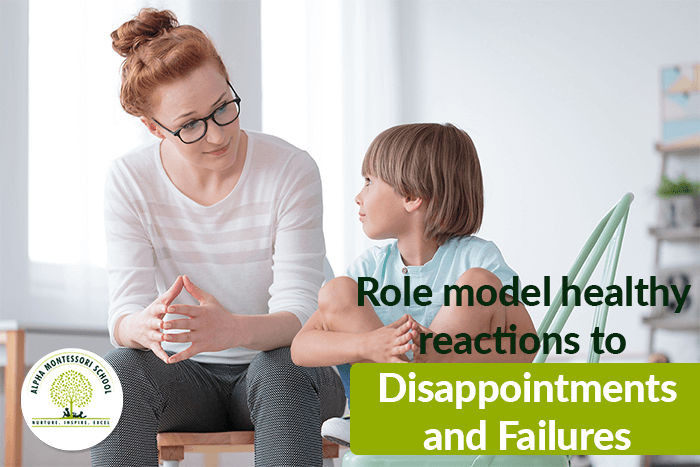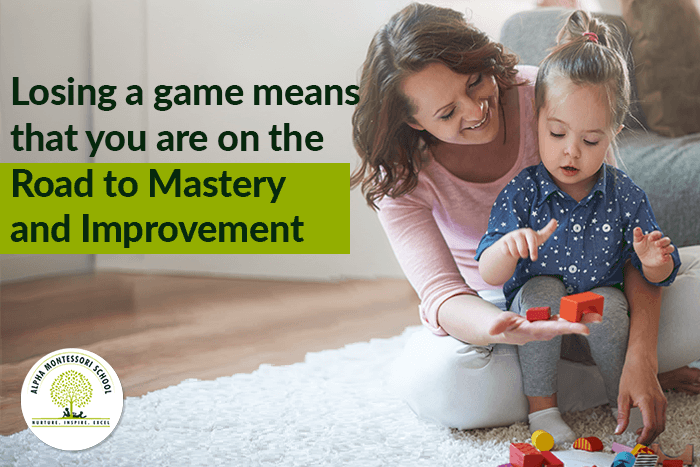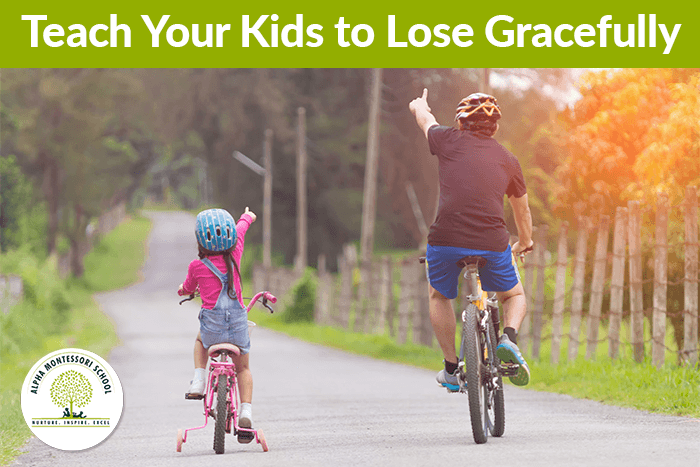It isn’t easy to lose to someone or to finish last in a race. Haven’t we seen adult tennis players slam their rackets on the ground? How much harder would it be then, for a preschooler to rationalize losing and keep a calm facade?
We live in an exceedingly competitive world. We have all seen children compete during play dates and throw a tantrum when they don’t win a game. According to Sally Belville Hunter Ph.D a clinical associate of child and family studies at the University of Tennessee, Knoxville, this is very normal behavior among preschoolers. Developmentally, at the age of 5, children are only beginning to understand rules and how they should follow them. Preschoolers are only just learning to regulate their emotions and understand fairness. It is important to understand their developmental pace and to help them manage their emotions. While our life lessons on how the world isn’t a fair place have good intentions, we need to help a preschooler handle these big feelings.
There are many ways to help children face challenges and defeat. Teaching them to deal with failures is critical for their happiness and progress in life. Here’s how you can talk about losing in a simple game or even a match.
1. Role model healthy reactions

Children observe us constantly and internalize our emotions and triggers. As adults, role modeling healthy reactions to disappointments and failures. This can be as simple as losing in a board or card game to dealing with setbacks at work. When playing board games as a family, emphasize sportsmanship or being a good sport. Yes, winning is great but tell them it is just a game and they can practice getting better at it. When playing family board games with children, here’s a million-dollar question – do we let them win? I really liked this approach by parenting writer Wayne Parker. His answer is – sometimes. He writes, “I tend to fall on the side of the ‘Sometimes’ group of parents who try to balance the competitive experience so that children learn to lose gracefully but also occasionally have the “thrill of victory.”
Parker gives us a great example from golf — there are three sets of tees used during a golf match. The championship tees are for experienced golfers, the middle tees are for the adept golfers, and the red tees are for new golfers who are yet to hone their skill set. Says Parker, “We can use this “different tees” paradigm when playing games with our children. We could give them a short head start in a race, or let them shoot baskets with a basket that is less than the regulation 10’ height—at least for a while. This is a good strategy for leveling the playing field between the child’s novice skills and the higher-level skills of a parent or older sibling.”
He also suggests a great idea – pair up with parents! Pair a child with a parent and compete. This is also a great way to role model sportsmanship.
2. Embrace a positive mindset

It is important to cultivate a growth mindset among children. A sport is a good way to do this because you can give concrete examples and explain strategies to children. A family sport where a family member loses and reacts constructively can set a healthy precedent for the children.
One strategy is to reframe losing and to look at it positively. Losing a game means that you are on the road to mastery and improvement. Focus on how it is important to progress from one goal to another and to move forward. Give your children examples of how well-known sportspeople react to losing a game. In the same way, reframe winning too. When winning, highlight discipline and grit. Also, encourage kids to self-assess. Why do you think this worked? Or did you expect that to happen? What can you do better next time? Make sure you talk this out when your child is calm. Focus on the pleasure he or she derives from the game and why it is enjoyable.
3. Acknowledge their feelings and emotions

Talking with a child who has just lost a game or faced a setback can be helpful for the child. After all, every experience comes with a lesson. Encourage children to understand and communicate their own feelings on losing a game. Did they play to the best of their abilities? What was the foremost thing on their mind when playing – determination, interest in playing by the rules, or anxiety? Do they feel frustrated that they lost? What do they wish they had done differently? It is important to let children understand that everything is a process.

As parents, we need to encourage our children and make them understand that different people have many different talents. We can give examples of athletes who persevered and bounced back. We can talk about how the longevity of an athlete’s career is more important than simply winning a game. We can tell them to derive joy from the game and the process too.
4. Internal and external motivation

A Montessori is a great education space to encourage self-reflection and analysis. Montessorians believe that intrinsic motivation is better than extrinsic motivation. A child works best when he or she is motivated by internal motivations instead of external forces like rewards, glory, accolades, and more. From a young age, children in a Montessori understand how to do things for themselves and why they want to do it. They understand themselves and work out problems. A Montessori environment views failure as a vital part of the process. Children are encouraged to be independent, expressive, and uninhibited.

In children, emotional control is a crucial executive function. When we become consumed by emotions, we get worked up and this is when core executive functions like anger regulation, attention, and focus become important. When children understand and deal with a setback, it helps them with other roadblocks in their academic or personal lives.

According to Kenneth Barish, psychology professor, participating in contests is important because children need to understand rules and respect sportsmanship. The rules might seem arbitrary to children but they need to understand why they exist and follow them.
When you teach your child how to accept defeat, it is not just a way to get them to deal with losing a game. It prepares them to deal with the setbacks and huge challenges that life will throw at them. Praise their efforts, understand their frustration, and make graceful winning part of the family culture when it comes to group competitions and sports.

 March 2nd, 2021
March 2nd, 2021

Your point of view caught my eye and was very interesting. Thanks. I have a question for you.
Thanks for sharing. I read many of your blog posts, cool, your blog is very good.
Your point of view caught my eye and was very interesting. Thanks. I have a question for you.
I don’t think the title of your article matches the content lol. Just kidding, mainly because I had some doubts after reading the article.
Your point of view caught my eye and was very interesting. Thanks. I have a question for you.
Thanks for sharing. I read many of your blog posts, cool, your blog is very good.
Your article helped me a lot, is there any more related content? Thanks!
Your point of view caught my eye and was very interesting. Thanks. I have a question for you.
O81xklBlOpe
ouyEmJoYgsg
c9SVdzFAzeI
PZD7k04FIk9
aecIP2NMNNA
11DQsmmfPqo
m9VmXEBrVO1
SK1x9Se4qqo
y4AeN6wqOPt
uZyjq2IbtGR
EOWhhcLHeFU
KaGS5CnrnCE
TlvcTlXl5Ko
LnHOK4H3wYo
z5AtRuC2vNp
hDaIJP7nq9I
fEQoHRAvpH3
EaaaPm6RAAj
Dco3IgptwDw
74flxxwy2Tb
zwDVGjz9V3H
Your article helped me a lot, is there any more related content? Thanks!
Thank you for your sharing. I am worried that I lack creative ideas. It is your article that makes me full of hope. Thank you. But, I have a question, can you help me? https://accounts.binance.info/en-IN/register?ref=UM6SMJM3